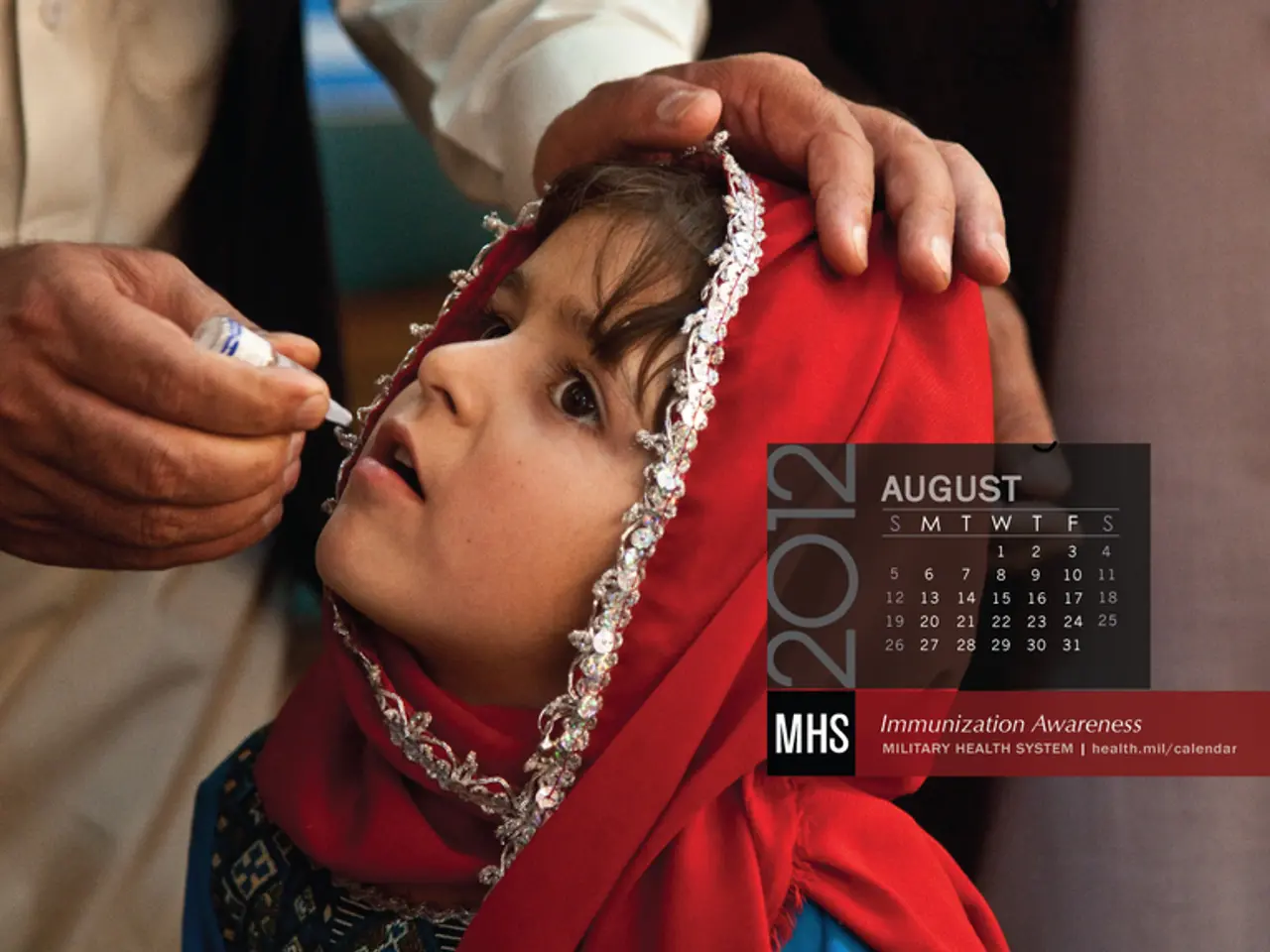Medical professional discloses hidden strategy to bolster belief in immunizations
In the face of growing concerns about vaccine safety and effectiveness, Professor Margie Danchin, a pediatrician at the Royal Children's Hospital in Melbourne, Australia, and a vaccine expert at the Murdoch Children's Research Institute (MCRI), is leading the charge to address vaccine hesitancy and build trust among parents.
Professor Danchin employs strategies focused on transparent communication, promoting research participation in clinical trials, and emphasizing the importance of protecting children from severe diseases. Her primary goal is to offer families the best available protection with new and improved vaccines, ensuring these vaccines are demonstrated to be safe and capable of triggering protective immune responses before inclusion in immunization schedules.
One of her key strategies is engaging parents directly in clinical trials. This approach was evident in the pneumococcal vaccine study involving infants, where Professor Danchin highlighted how participation helps discover better vaccines and protect children’s futures.
Clear, evidence-based messaging about vaccine benefits and safety is another crucial component of Professor Danchin's approach. She reassures parents by explaining the need for ongoing research to cover more strains of diseases and improve protection.
Professor Danchin also collaborates with health experts and communicates through media and professional platforms to discuss vaccine issues and responses, thereby building trust through authoritative scientific advice.
To further address vaccine hesitancy, Professor Danchin emphasizes the importance of discussing the diseases that vaccines aim to prevent. She gently explains the research that shows no evidence of a link between vaccines and autism, and stresses the need for access to trustworthy sources of information.
Storytelling narratives can also be an effective way to convey the importance of vaccines. Professor Danchin uses a ground-up approach, approaching parents without aggression or judgment, and strives to establish herself as a credible source while being respectful and ensuring that parents feel their concerns are heard.
Moreover, Professor Danchin works to dispel concerns about a link between vaccines and autism by sharing research that disproves the association. She states that there have been no differences in the incidence of autism between children who have received the MMR vaccine and those who have not.
In her research, Professor Danchin focuses on vaccine hesitancy and strategies to address it. She aims to address patients' concerns while building trust through strategies like the Vaccine Champions Program, which trains healthcare providers and community leaders to communicate about vaccines.
Childhood vaccination rates are falling in many areas in Australia, mirroring other regions in the U.S. and around the world. However, Professor Danchin's primary focus is fighting the erosion of vaccine confidence, especially at a time when technology is advancing and the need for these advances to combat childhood diseases is growing.
For instance, one example of this technology is the new maternal vaccination against RSV (respiratory syncytial virus) and the RSV monoclonal antibody treatment for newborns, called nirsevimab. In Western Australia and Queensland, nirsevimab has led to an 80% decrease in hospitalizations from RSV.
However, it's important to note that misinformation can lead to incorrect assumptions, such as attributing deaths to vaccines during the pandemic, when they could have been due to other causes. Professor Danchin stresses the importance of being respectful and inviting open conversation with others to combat such misinformation and build trust in vaccines.
In conclusion, Professor Margie Danchin's approach to addressing vaccine hesitancy is rooted in transparency, evidence-based communication, collaboration, and respect. By reinforcing the role of vaccines in preventing severe diseases and openly sharing research outcomes, she helps build parental confidence and addresses vaccine hesitancy in Australia.
Technology advances are playing a crucial role in combating childhood diseases, as seen in the new maternal vaccination against RSV (respiratory syncytial virus) and the RSV monoclonal antibody treatment for newborns, such as nirsevimab, which have reduced hospitalizations from RSV in Western Australia and Queensland by 80%.
Professor Danchin's science-based approach to vaccine hesitancy also involves collaborating with health experts and communicating through media and professional platforms to discuss vaccine issues and responses.
By employing strategies focused on transparent communication, promoting research participation in clinical trials, and emphasizing the importance of protecting children from severe diseases, Professor Danchin aims to build trust among parents in the world of business, health, and science, thereby ensuring the best available protection for children with new and improved vaccines.




